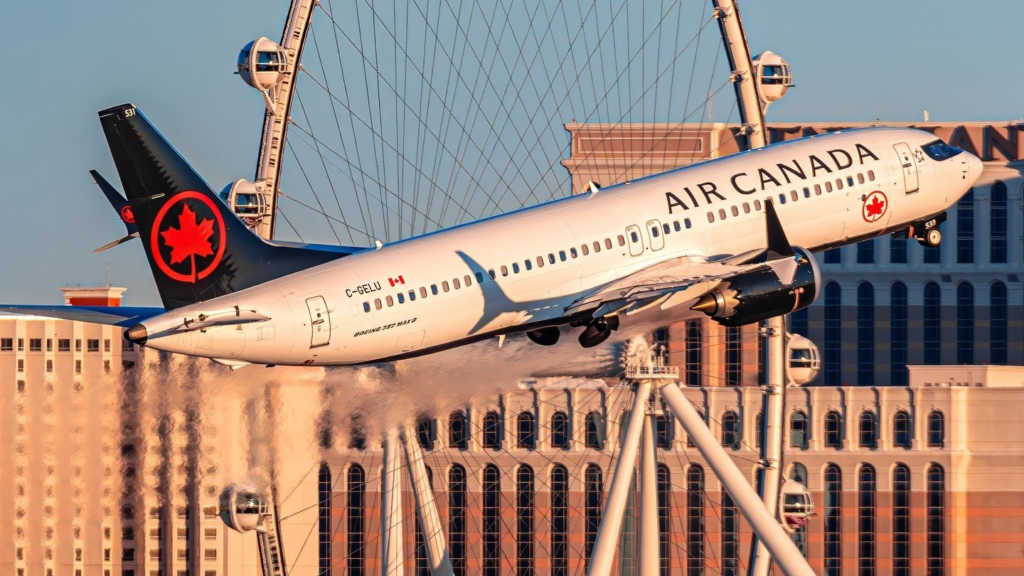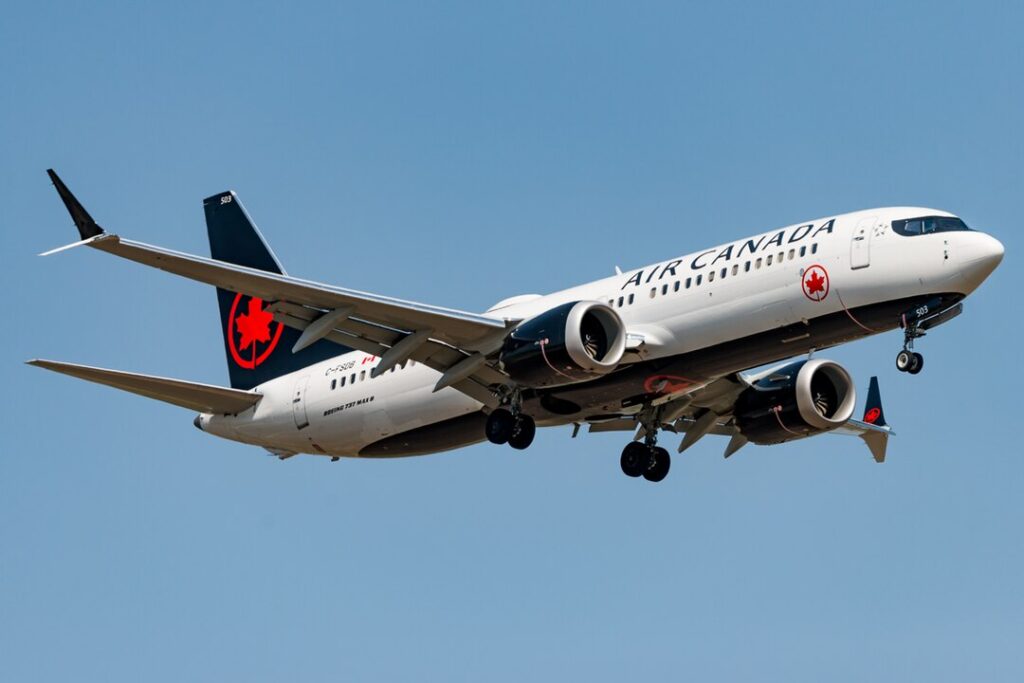QUEBEC- Air Canada (AC) has been ordered by the Quebec Court of Appeal to pay over CA$10 million in damages to passengers in a class-action lawsuit centered on misleading airfare advertising practices.
The ruling overturns a previous court decision and cites Air Canada’s “ignorance and laxity” regarding Quebec’s Consumer Protection Act, ending a 15-year legal battle initiated by a Montreal resident who was charged $124 above the advertised fare price.

Air Canada Fined $10 Million
The long-running legal dispute dates back to 2009 when a Montreal resident and a consumer advocacy group filed a class-action lawsuit against Air Canada.
The complainant had discovered that the final price of his ticket included $124 in additional taxes, fees, and surcharges that were not clearly disclosed during the initial fare display on the airline’s website.
Justice Judith Harvie, in her ruling on Tuesday, criticized Air Canada’s approach to consumer protection regulations. The court found that the airline had incorrectly assumed it was exempt from Quebec’s provincial Consumer Protection Act provisions regarding transparent pricing.
This misinterpretation led to years of non-compliant advertising practices that undermined consumers’ ability to make informed purchasing decisions.

Landmark Decision Reverses Previous Ruling
The Quebec Court of Appeal’s decision marks a significant reversal from the lower court’s finding.
While the previous ruling acknowledged that Air Canada had technically breached provincial law, it determined that no measurable harm resulted from these violations, thus eliminating the need for punitive damages.
The appellate court disagreed with this assessment, concluding that Air Canada’s practices caused tangible harm to consumers by preventing price transparency and comparison shopping.
By advertising one price initially and then adding substantial fees later in the booking process, the airline effectively engaged in a “bait and switch” pricing strategy that violated consumer protection principles.
This ruling comes at a pivotal time for the airline industry as regulatory bodies worldwide scrutinize so-called “drip pricing” tactics.
The practice involves advertising a base fare and gradually adding mandatory fees and surcharges throughout the booking process, resulting in a final price significantly higher than what was initially displayed.

Similar Fine
A Canadian federal court has ordered Air Canada to pay US$3,100 (CA$4,100) in damages to Paula Mejias, a Venezuelan woman whose family was stranded in Panama City for 33 days after their valid Canadian visas were improperly canceled.
The incident occurred in 2017 when Mejias and her three children attempted to board a flight to Toronto at Panama’s Tocumen International Airport to visit the children’s father, who was an international student in Canada. Their valid travel documents were marked “CANCELLED CBSA” by an Air Canada check-in supervisor, preventing their travel.
Justice John C. Cotter delivered a 60-page ruling on April 11, 2025, concluding that Air Canada exceeded its authority and triggered the visa cancellations. The court determined that Mejias and her children possessed all required valid travel documents at the check-in counter, placing liability for their 33-day ordeal on the airline rather than the Canadian government.
The court identified Air Canada check-in supervisor Arlin Corrales as a central figure in the case, finding her testimony unreliable on multiple points. While Corrales claimed the family had received a “no board” alert, evidence showed Mejias’ visa information was never properly entered into Air Canada’s system. Instead, Corrales contacted Canadian authorities based on personal suspicions that the family might overstay their permitted time in Canada.
Kent Francis, a senior Canadian embassy official who initially canceled the visas based on Air Canada’s information, later restored them after learning through Mejias’ lawyer that her husband was applying for a post-graduation work permit. Francis testified that standard procedure would have required direct communication between the Canada Border Services Agency and the visa holders, which never happened in this situation.
The ruling establishes an important precedent regarding airline limitations in immigration matters. Mejias, now a Canadian permanent resident, stated the judgment “recognizes that airlines should not meddle with immigration-related matters” and clarifies that airlines should only verify document validity at presentation.
Air Canada has called the ruling “troubling,” arguing carriers are legally required to deny boarding to passengers without proper documentation and face penalties for non-compliance.
Feature Image by Clément Alloing | Flickr
Stay tuned with us. Further, follow us on social media for the latest updates.
Join us on Telegram Group for the Latest Aviation Updates. Subsequently, follow us on Google News

